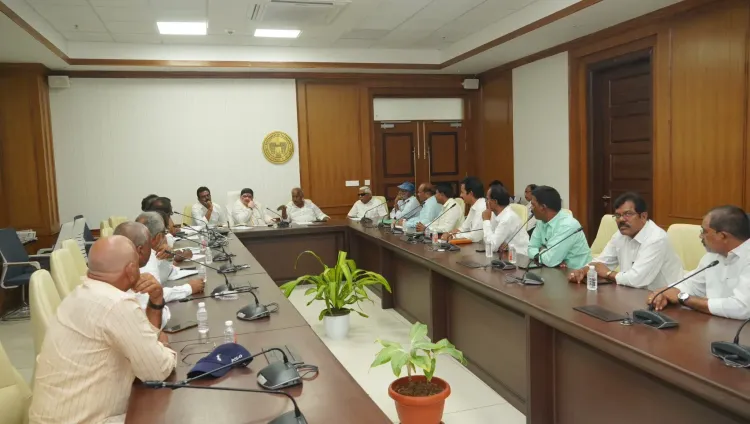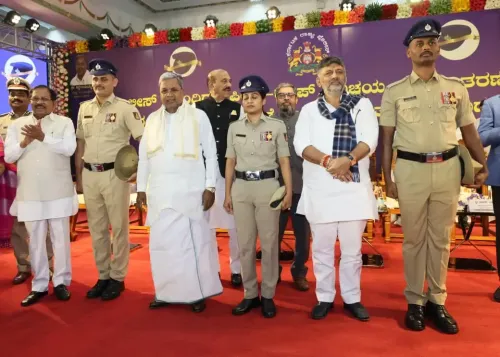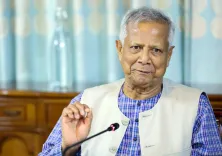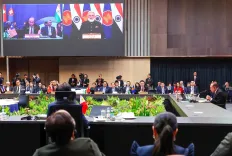Did Telangana RTC Employees Postpone Their Strike After Talks with the Transport Minister?

Synopsis
Key Takeaways
- TGSRTC employees have postponed their strike following government discussions.
- A three-member committee has been formed to address employee demands.
- Job security and procurement of electric buses were key discussion points.
- The decision to delay the strike was influenced by national security considerations.
- Management warns against any actions threatening the organization’s stability.
Hyderabad, May 6 (NationPress) Employees of the Telangana State Road Transport Corporation (TGSRTC) have opted to postpone their indefinite strike planned for Wednesday following the state government's agreement to review their requests.
This positive development occurred during discussions between Transport Minister Ponnam Prabhakar and leaders of the Joint Action Committee (JAC) of the TGSRTC employees on Tuesday.
The government has decided to form a three-member committee comprising IAS officials tasked with negotiating with the employees' unions to address their demands.
The committee, which includes Naveen Mittal, Lokesh Kumar, and Krishna Bhaskar, is expected to report back to the government.
During the three-hour negotiations, JAC leaders emphasized the need for the government to ensure job security for employees. The Transport Minister responded favorably to their request for the procurement of electric buses for the RTC.
The JAC decided to delay their strike to allow the government time to respond to their issues. They also considered the current situation in the country following the recent terror attack in Pahalgam.
However, they made it clear that this decision is only temporary, and a strike will be initiated if their demands remain unaddressed.
The JAC had originally planned to commence the strike on May 7, which could have resulted in over 6,000 buses halting operations, impacting more than 60 lakh passengers across the state daily.
Among the JAC’s demands are the long-awaited merger of the RTC with the state government, the implementation of two Pay Revision Commissions (PRC), payment of outstanding dues to the Credit Cooperative Society (CCS) and employees’ provident funds, as well as wage revisions and pending allowances.
The TGSRTC management has warned that disciplinary actions will be taken against those who threaten employees or disrupt their duties.
In an open letter to staff, management noted that strikes are forbidden in the RTC under the Essential Services Maintenance Act (ESMA) and that legal action may be pursued against individuals who threaten employees or obstruct their responsibilities under the guise of a strike.
The management urged employees not to proceed with the strike, emphasizing that it could lead to irreparable damage to the organization and its workforce at a critical moment in its recovery.









